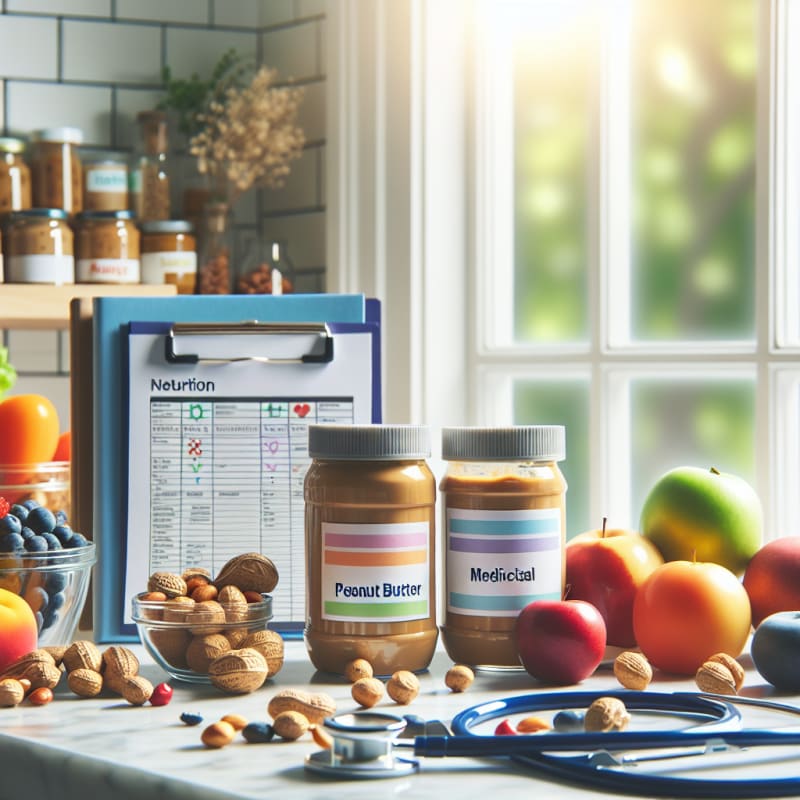Simple Tools Boost Pediatrician Compliance with Early Peanut Allergy Prevention Guidelines
For anyone concerned about food ingredients—whether due to allergies, dietary preferences, or ethical choices—staying informed is essential. Recent advances in allergy prevention, especially regarding peanuts, are changing how pediatricians advise families. This article explores how simple tools are increasing pediatrician compliance with early peanut allergy prevention guidelines, why it matters, and how you can make smarter food choices in a rapidly evolving landscape.
Why Early Peanut Allergy Prevention Matters
Peanut allergies affect millions of children worldwide, with significant health and lifestyle consequences. The FDA and EFSA recommend early introduction of peanuts to infants at risk, based on landmark studies such as the LEAP trial1, which showed up to an 81% reduction in peanut allergy development.
- Guidelines: Introduce peanut-containing foods as early as 4–6 months for infants at high risk.
- Challenges: Many pediatricians struggle to consistently implement these guidelines due to time, uncertainty, and lack of practical tools.
How Simple Tools Improve Pediatrician Compliance
According to a recent News-Medical article, pediatricians using simple digital prompts and checklists are far more likely to follow these guidelines. These tools provide:
- Quick risk assessment for infants
- Step-by-step guidance for introducing peanuts safely
- Automated reminders for follow-up and monitoring
| Tool Type | Impact on Compliance | Ease of Use |
|---|---|---|
| Digital Checklist | +40% guideline adherence | High |
| EMR Prompts | +35% guideline adherence | Moderate |
| Printed Flowcharts | +20% guideline adherence | High |
Recent News: Food Safety Alerts & Regulatory Updates
Food safety is a fast-moving field. Here are some recent developments that impact those with allergies and food sensitivities:
- Peanut Butter Recall: In June 2024, the FDA announced a recall of several peanut butter brands due to potential salmonella contamination (FDA Recall Database).
- New EU Labeling Law: The EFSA has endorsed stricter labeling rules for allergens in packaged foods, making it easier for consumers to identify risks (FoodNavigator).
- Emerging Food Trends: Plant-based peanut alternatives are gaining popularity, offering options for those with allergies or dietary restrictions (Food Dive).
Long-Term Implications: A Safer Future for Food Allergies
Improving pediatrician compliance with early peanut allergy prevention guidelines could dramatically reduce allergy rates, making food choices safer for future generations. With regulatory bodies like the FDA and EFSA tightening standards, and technology empowering both clinicians and consumers, the landscape is evolving toward greater transparency and safety.
How Food Scan Genius Simplifies Smart Food Choices
For families managing food allergies, knowing what’s in your food is critical. The Food Scan Genius app helps users instantly check ingredient lists, allergen warnings, and dietary compatibility—whether shopping or dining out. Here’s what one parent shared:
“Food Scan Genius made grocery shopping stress-free. I just scan the barcode and instantly see if a product is safe for my child’s peanut allergy. Highly recommend!”
— Sarah L., Boston, MA
Download Food Scan Genius today and take control of your food choices: scangeni.us
Frequently Asked Questions
What are the current guidelines for early peanut introduction?
The FDA and leading pediatric organizations recommend introducing peanut-containing foods as early as 4–6 months for infants at risk, after consulting with a healthcare provider.1
How do simple tools help pediatricians follow these guidelines?
Digital checklists, EMR prompts, and printed flowcharts streamline risk assessment and guide safe peanut introduction, improving adherence and outcomes.2
What recent food safety alerts should I know about?
Check the FDA’s recall database for up-to-date alerts on peanut products and other allergens. EU consumers should note new labeling laws for packaged foods.3
How does Food Scan Genius help with food allergies?
The app scans barcodes to instantly reveal allergen information, ingredient lists, and dietary compatibility, supporting safe choices for families and individuals.4
Conclusion: Empowering Smart Food Choices
Understanding ingredients and staying up to date with allergy prevention guidelines is vital for families, healthcare providers, and anyone mindful of food safety. With simple tools, regulatory updates, and smart apps like Food Scan Genius, making safe and informed food choices is easier than ever. Whether you’re shopping for your family or dining out, knowledge—and technology—are your best allies.
References:
- LEAP Study: Early Peanut Introduction
- Implementation of Allergy Prevention Guidelines
- FDA Recall Database
- Food Scan Genius App
- EFSA: Food Allergy Overview
- FoodNavigator: EU Allergen Labeling Law
- Food Dive: Plant-Based Peanut Alternatives





